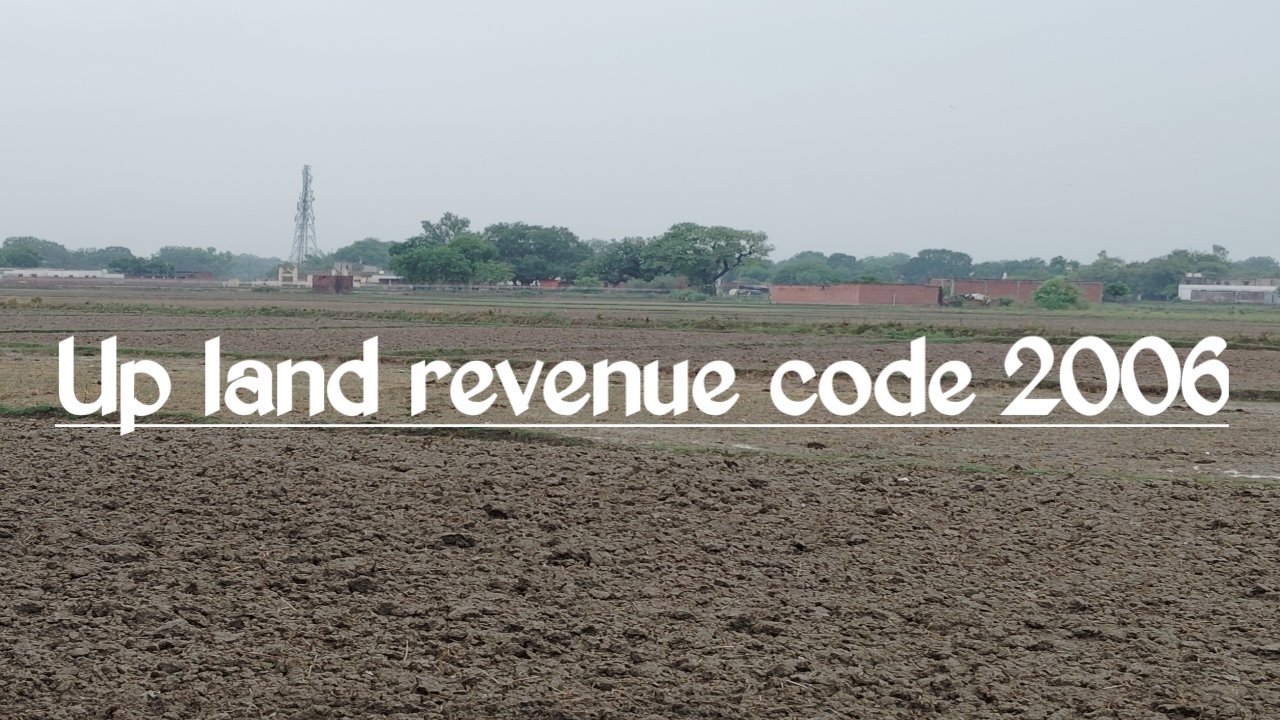The ejectment is to remove the possession of any individual from land use which is entitled to leave after expiry of period or by bhumidhar to retain land from asami.
Grounds of Suit for ejectment against asami, Expiration of period, Right to crops and trees, persons occupying land without title, Categories of land, Ejectment of trespassers of Gram Panchayat land.
Bhumidhars not to be ejected section 130 up land revenue code
No bhumidhar shall be liable to ejectment from the land held by him except as provided by or under this Code.
Grounds of Suit for ejectment against asami, up land revenue code, section 131
(1) No asami shall be liable to ejectment from the
land held by him, except on the suit of the landholder or Gram Panchayat, which may be filed on one or more of the following grounds, namely-
- (a) That the interest of the asami in the land held by him has extinguished under the provisions of this Code.
Expiration of period, ejectment up land revenue code
- (b) That the asami was holding land from year to year or for a period which has already expired or will expire before the end of the current agricultural year.
- (c) That the asami is using the land for any purpose not permitted by section 84.
Disabilities of land holder, ejectment up land revenue code
- (d) That the land holder was suffering from any of the disabilities referred to in sub-section (1) of section 95 and either his disability has ceased or he wishes to bring the land under his personal cultivation.
Failed to pay arrears, ejectment up land revenue
- (e) That the asami was in arrears of rent for a period of more than one year and has failed to pay the same to the land holder within a period of thirty days despite service of a notice of demand.
- (f) That the asami has transferred the whole or part of the land held by him in contravention of the provisions of this Code.
Arrears of rent from asami, ejectment suit, up land revenue code
- (2) No notice to quit to the asami shall be necessary before filing a suit under this section.
- (3) The land holder may in a suit for ejectment also claim arrears of rent.
- (4) A land holder may, without suing for ejectment sue the asami for arrears बक़ाया राशि of rent.
Right to crops and trees, ejectment up land revenue section 132 Up land revenue
(1) Where in execution of a decree passed in a suit under section 131, an asami is ejected, and the Court is satisfied that any ungathered crops or trees belonging to the judgment debtor exist on the land, the Court shall, notwithstanding anything contained in the Code of Civil Procedure, 1908, proceed in the following manner:
Amount due greater than value of such crops or trees, ejecting, up land revenue
(a) if the amount due from the judgment-debtor is equal to or greater than the value of such crops
or trees, the Court shall deliver the possession of the land with the crops and trees to the decree
holder, and all rights of the judgment-debtor in or upon such crops or trees shall therefore pass to
the decree-holder.
Due amount less than value of crops or trees, paid difference by decree holder, ejection
(b) If the amount due from the judgment-debtor is less than the value of such crops or trees, and-
- (i) The decree-holder pays the difference between such amount and the value to the judgment- debtor, the Court shall deliver possession of the land to the decree holder and all rights of the judgment-debtor in such crops or trees shall therefore pass to the decree-holder.
Difference amount not paid by decree holder, up land revenue
- (ii) The decree-holder does not pay such difference the judgment-debtor shall have the right of tending, gathering or removing such crops or trees or fruits of such trees, until such crops or trees have been gathered or removed or die or are cut down, as the case may be, paying such compensation for the use and occupation of land as the court may fix.
Court executing the decree, ejection up land revenue
(2) The court executing the decree may, on the application of any party, determine the value of the crops or trees and the compensation payable by the judgment debtor under the provisions of subsection (1).
Suit for injunction, compensation etc. Against asami while ejectment, up land revenue section 133
The Gram Panchayat, or the landholder may, in lieu of suing for ejectment of an asami under section 131, file a suit in the Court of Sub-Divisional Officer:-
- (a) for injunction restraining him from putting the land to any unauthorised use or causing any waste or damage to it.
- (b) for compensation for such use, waste or damage, or
- (c) for repair of the waste or damage caused to the land.
Ejectment of persons occupying land without title section 134 up land revenue
- (1) Where a person takes or retains possession of any land forming part of the holding of any bhumidhar or asami otherwise than in accordance with the provisions of the law for the time being in force and without the consent of such bhumidhar or asami, such person shall be liable to ejectment on the suit of the bhumidhar. or
- Asami concerned, and shall also be liable to pay damages at the rate prescribed,
- (2) To every suit relating to any land referred to in sub-section (1), the State Government and Gram Panchayat shall be impleaded as necessary parties.
Ejectment of trespassers of Gram Panchayat land section 136 uttar pradesh land revenue
(1) Notwithstanding anything contained in other provisions of this Code, the Sub- Divisional Officer may, of his own motion or on the application of the Gram Panchayat or other local authority, eject any person taking or retaining possession of any land specified in sub-section (2).
If such possession is in contravention of the provisions of this Code and is without the consent of such Gram Panchayat or the local authority and shall also be liable to pay damages at the rates prescribed.
Categories of land, Ejectment of trespassers of Gram Panchayat land
(2) The provisions of sub-section (1) shall apply to the following categories of land, namely-
- (a) Any land entrusted or deemed to be entrusted to any Gram Panchayat or local authority under the provisions of this Code or any other law for the time being in force.
Gram Panchayat or local authority is entitled to take possession, ejecting, up land revenue
- (b) Any land over which a Gram Panchayat or local authority is entitled to take possession under the provisions of this Code.
- (c) any land which belongs to or is owned or held by a Gram Panchayat or local authority,
- (d) that the asami is holding land specified in clause (d) or clause (e) of section 77 and that the cultivation of crops in such land has become impossible.
- (e) that the asami was admitted to the land under clause (b) of section 125 of the Gram Panchayat proposes to use it for a public purpose.
Adequate opportunity to
show cause, evicting
(3) No person shall be evicted from any land under this section unless adequate opportunity to
show cause has been afforded to him.
(4) In evicting a person under this section, the Sub-Divisional Officer may use or cause to be used such force as may be necessary.
Explanation – For the purposes of this section, the word ‘land’ includes trees and other improvements existing on such land.
Remedies for wrongful ejectment, section 137 uttar pradesh land revenue
(1) An asami ejected or apprehending ejectment from or prevented from obtaining possession of any land otherwise than in accordance with the
provisions of any law for the time being in force, may sue the person so ejecting him, trying to
eject him or keeping him out of possession,
- (i) for possession of the land, or
- (ii) for compensation for wrongful dispossession.
Compensation award, uttar pradesh land revenue code
(2) When a decree is passed for compensation for wrongful dispossession but not for possession, the compensation awarded shall be for the whole period during which the asami was entitled to remain in possession.

